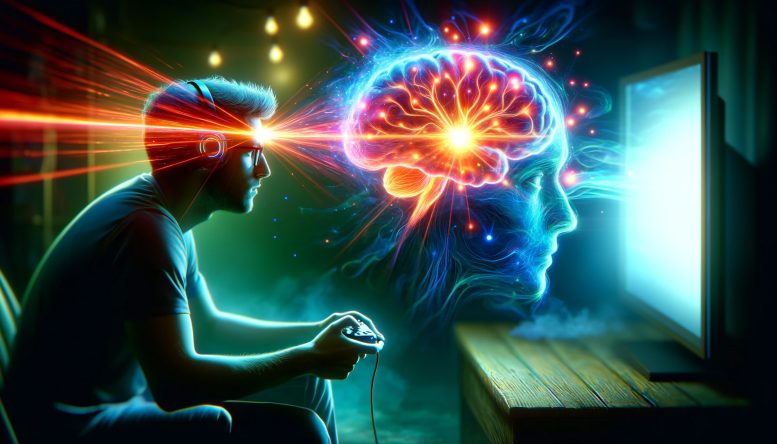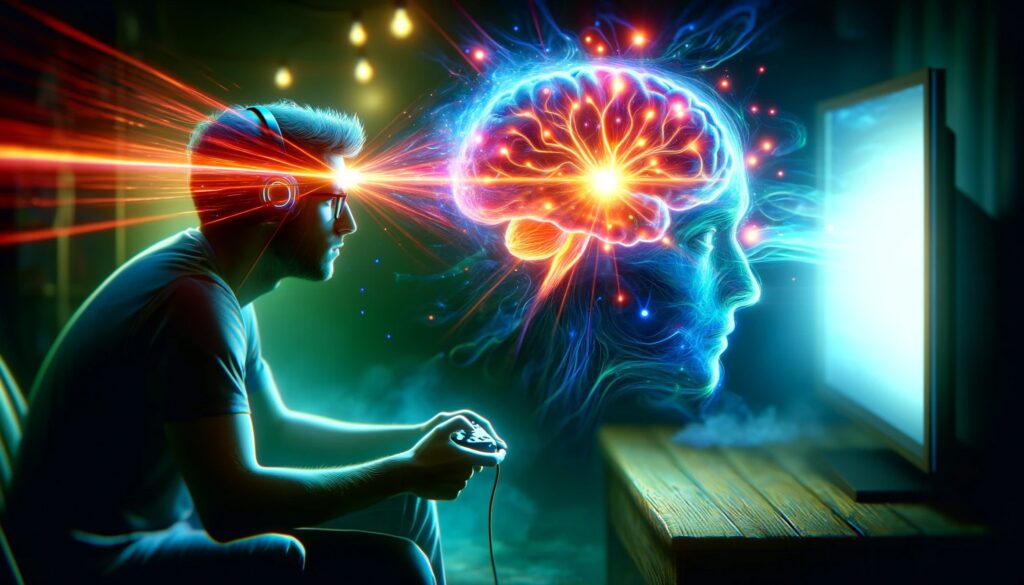
Research shows that gamers have improved cognitive abilities, such as faster reaction times and better memory, compared to non-gamers. Despite the criticisms of the game, these findings demonstrate potential benefits in professional fields that require high cognitive performance without increasing cognitive fatigue. Credit: SciTechDaily.com
A new study reveals that people who frequently play video games have improved performance on cognitive tasks related to attention and memory.
New research published in British Psychological Society papers British Journal of Psychologyfound that typical gamers performed better on tasks assessing cognitive functions such as attention and memory.
The study was conducted at the University of Limerick's Lero Esports Science Research Lab and involved 88 young people, half of whom regularly played over seven hours of action-based video games each week.
Participants were tested on three tasks that measured different aspects of cognitive ability. These include a simple reaction time test, a switching response task to number and letter combinations to assess executive function and working memory, and a maze-based activity to assess visuospatial. memory.
The researchers found that regular gamers were able to complete the number-letter and maze tasks 12.7% and 17.4% faster, respectively, than a group of non-gamers.
Cognitive benefits and impacts
Dr Adam Toth, from the University of Limerick and Lero, said: 'Regularly playing video games is often criticized and seen as unhealthy, but gamers suffer from poor health compared to the wider population, particularly when it comes to attention and memory. “Our research shows that there may be cognitive benefits.” , a professor at the Irish Science Foundation Software Research Center, is one of the authors of this study.

A new study published in the British Journal of Psychology by a team at Science Foundation Ireland Software Research Center Lero found that typical gamers performed better on tasks measuring cognitive functions such as attention and memory. I understand. Pictured are lead author Professor Mark Campbell, Director of the Lero Esports Science Laboratory at the University of Limerick (UL), and corresponding author Dr Adam Toth, Lero, UL. Credit: Alan Place (www.alanplacephotography.com)
Dr Mark Campbell added: “As with previous research in our lab, this study could have implications for areas where cognitive abilities are most important, such as surgery and air traffic control, where cognitive development “Video game play may be encouraged.'' Requires elite cognitive abilities. ”
The study also investigated the additional angle of whether gamers are less likely to suffer from cognitive fatigue than the general population.
Some participants were assigned additional tasks that required prolonged concentration and were designed to cause cognitive fatigue (decreased performance) before being reassessed on the first cognitive test. Ta.
The researchers found that gamers and non-gamers experienced decreased performance at the same rate, and there were no significant differences in the level of cognitive fatigue they experienced.
Reference: “Comparison of cognitive performance of action video game players and age-matched controls after a cognitive fatigue task: Stage 2 enrollment report” Mark J. Campbell, Sarah C. Cregan, John M. Joyce, Magdalena Kowal, Adam J. Author. Toth, December 23, 2023. British Journal of Psychology.
DOI: 10.1111/bjop.12692


